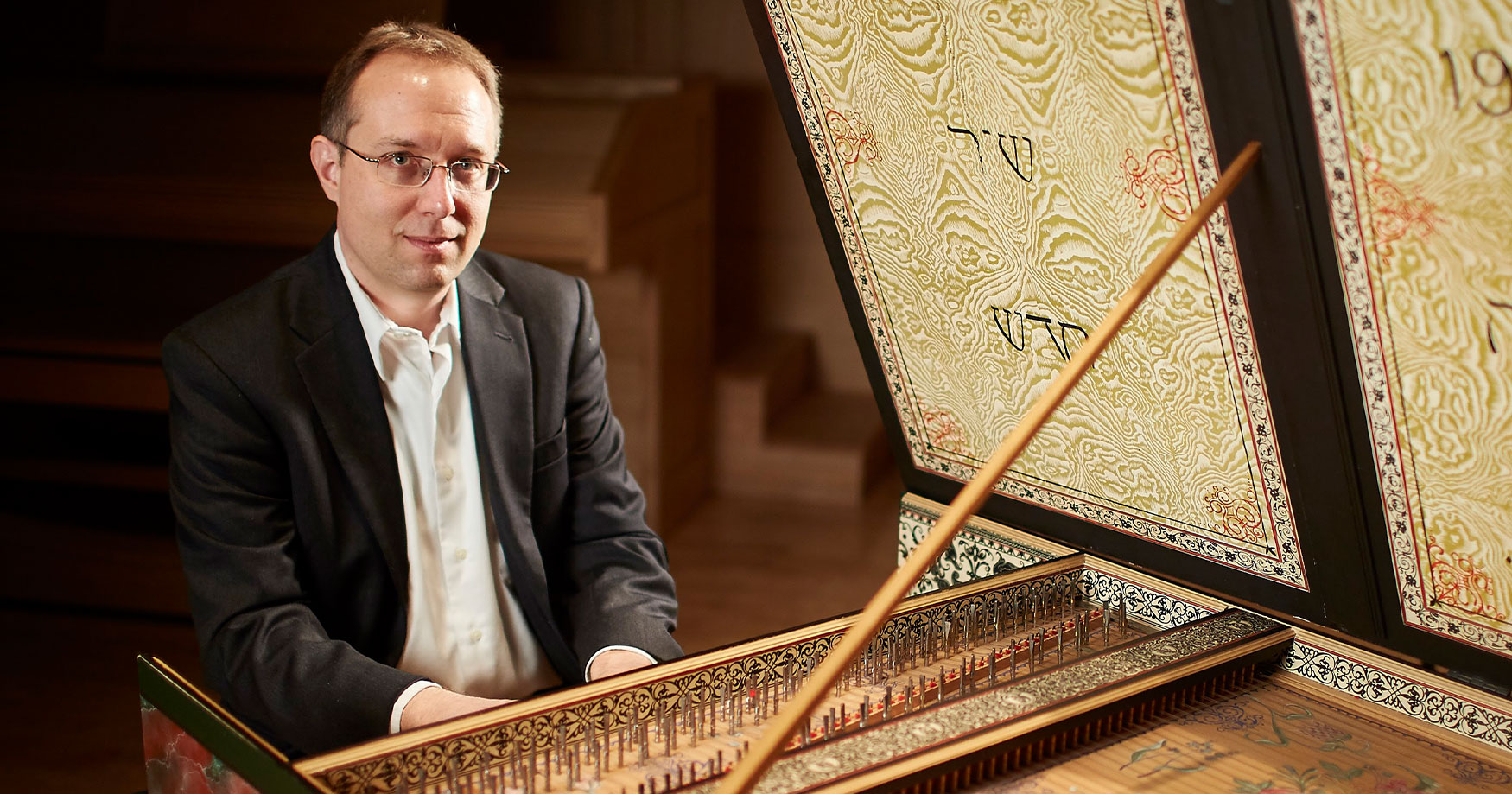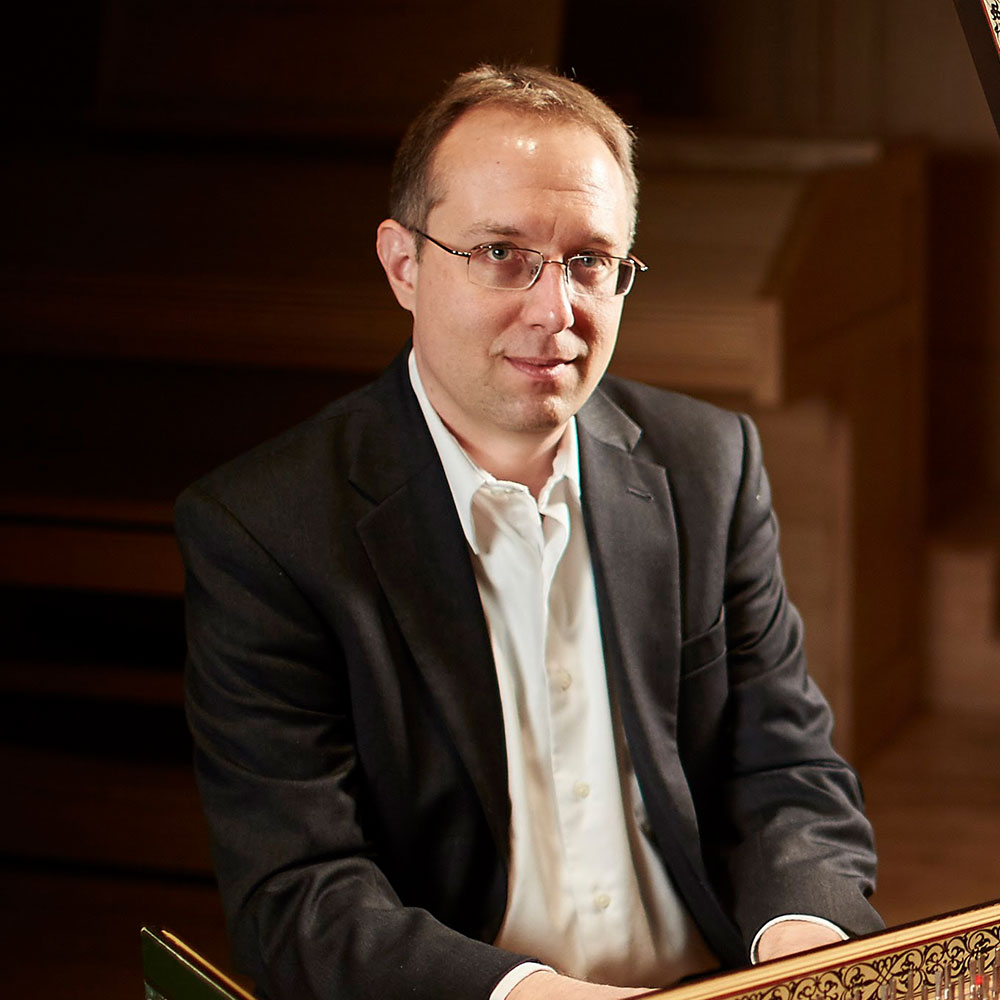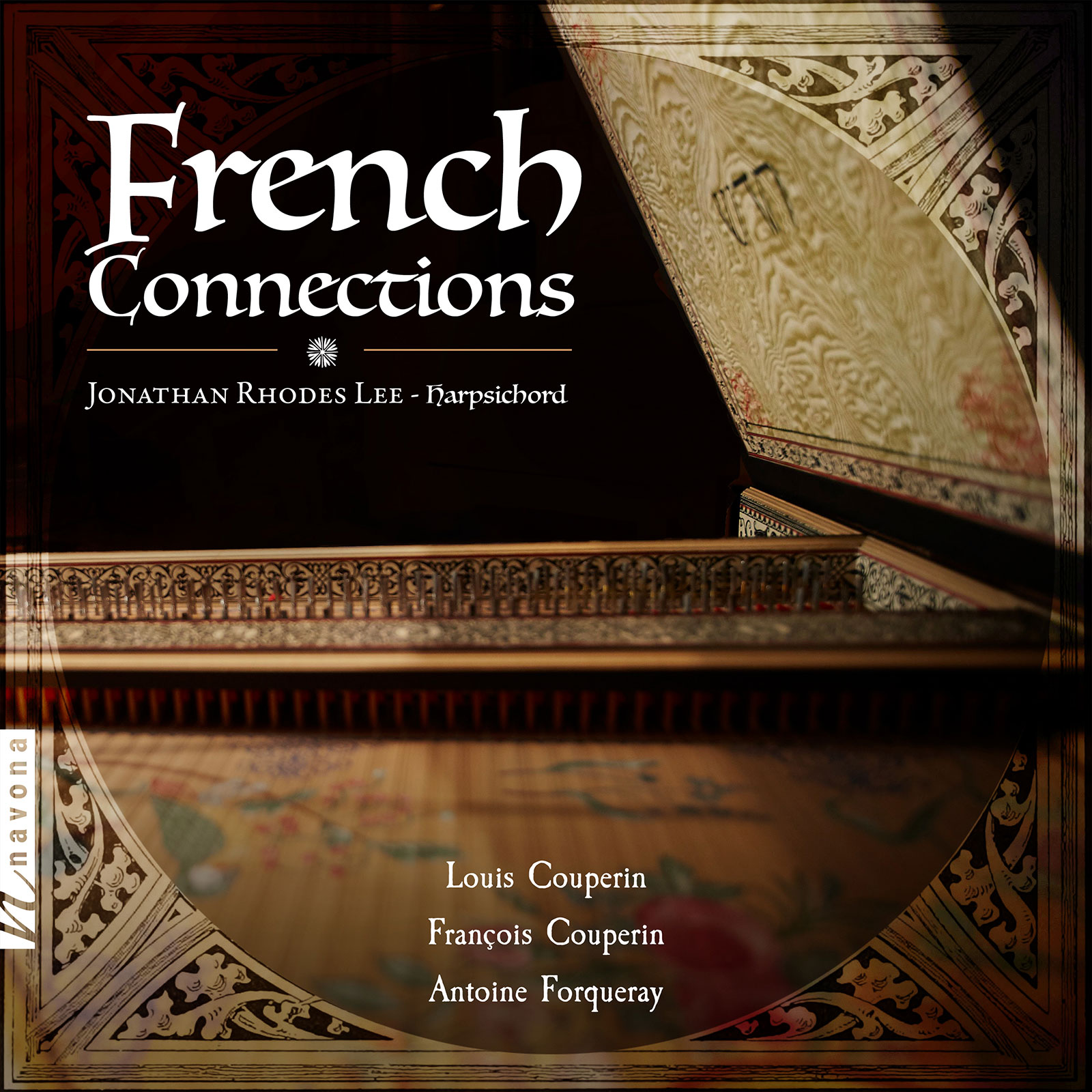
FRENCH CONNECTIONS is a new album of French works for harpsichord performed by Jonathan Rhodes Lee. The pieces selected for this collection celebrate the small, tight-knit pantheon of 17th-century French harpsichordists who helped shape the instrument’s repertoire. While the total output of these composers would make for countless hours of listening, FRENCH CONNECTIONS offers a taste of this expansive body of work.
Today, Jonathan is our featured artist in “The Inside Story,” a blog series exploring the inner workings and personalities of our composers and performers. Read on to learn about the musical inspiration he gained from his uncle, and his fondness for southern delicacies and culture…
Who was your first favorite artist growing up?
The first early music CD that I purchased (as a nerdy pre-teen!) featured Davitt Moroney and John Holloway playing the Bach violin sonatas with obbligato harpsichord. From that moment, I started seeking out Davitt’s harpsichord recordings, including his complete Louis Couperin discs, his recording of Byrd’s pavans and galliards, and his Bach playing. I was in awe of the clarity and intelligence of his musicianship. Later, I felt deeply honored to have the opportunity to study with Davitt while a student at the San Francisco Conservatory.
When did you realize that you wanted to be an artist?
I started taking piano lessons around age four, and I more or less never looked back. My uncle was a professional musician, and he used to say that because he loved what he did so much, he didn’t feel like he had worked a day in his life. I thought that sounded like a good way to live, and I did my best to emulate it.
What is your guilty pleasure?
You can take a boy out of the South, but you can’t take the South out of the boy. I’m a native Mississippian, and I remain addicted to all things from that corner of the world, from food (boiled peanuts!) to music (in my spare time, I try to play blues guitar, and I listen to an awful lot of blues and Southern rock music).
If you could make a living at any job in the world, what would that job be?
Is it a boring answer to say that I already love what I do? I spend my days teaching about, writing about, and making music that I care deeply about. I can’t imagine living a life outside of music.
If you could spend creative time anywhere in the world, where would it be?
I have had the great fortune of living and working in some early music “hotspots” in both Europe and the United States, but I have never had the opportunity to play early music in New Orleans. Something about the architecture, the mood, and the cultural history of that great, old American city seems nicely suited to the harpsichord and to early French repertoire in general. I look very much forward to playing there someday.
What was your favorite musical moment on the album?
That’s a really tough one! I love all this music so deeply, from the creative elegance of Louis Couperin’s music to the raucous atmosphere of the Forqueray suite. I suppose if I must choose just one moment, it would be the opening of François Couperin’s “La Superbe.” I adore Couperin’s control of the harpsichord’s most beautiful sonorities, the dissonances, and the stereotypically French ornaments. Such beautiful music!
What does this album mean to you personally?
Most harpsichordists are trained in French schools of playing and thinking about the instrument. The pieces on this album are among my favorite works that taught me how expressive and varied the harpsichord can be. It is challenging, rewarding, and slightly terrifying music written by the greatest masters of the instrument’s history. I stand in awe of these musicians and their output, and I hope to do it expressive justice.

Jonathan Rhodes Lee is Associate Professor of Music at the University of Nevada, Las Vegas. He studied harpsichord with Laurette Goldberg, Joscelyn Godwin, Davitt Moroney, and Jacques Ogg. He holds degrees from the San Francisco Conservatory of Music and the University of California, Berkeley, and he was a Fulbright Scholar at the Royal Conservatory of Music in The Hague, Netherlands. Lee’s work as a musicologist focuses on 18th-century repertoires and film music, and his recordings can be heard on the MSR, Equilibrium, and Navona labels.

